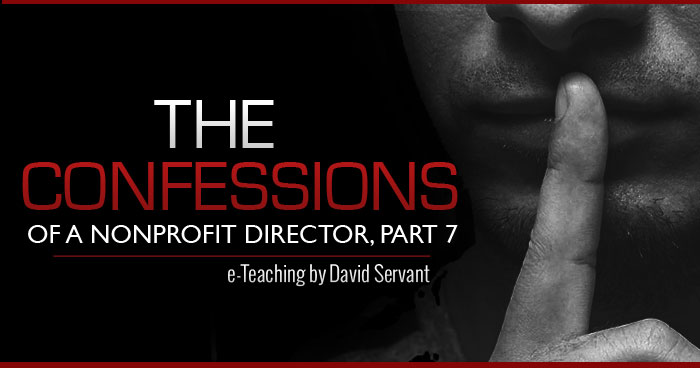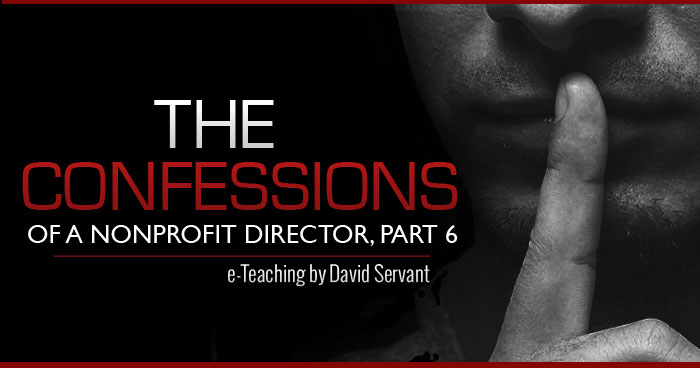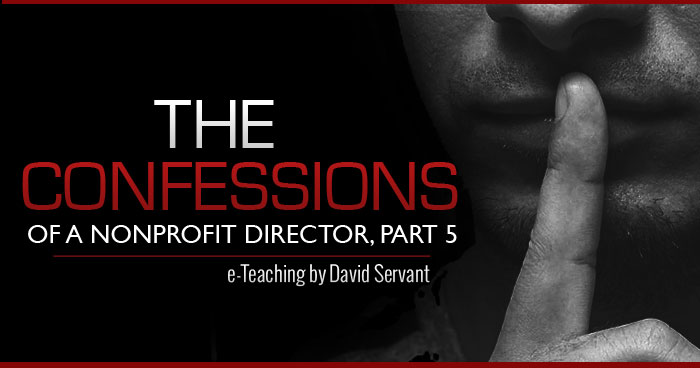Notice that Jesus would save His people “from their sins,” implying not only the forgiveness of sins, but also deliverance from sinning. – David Servant
Category Archives: Blog
For Whom Should You Vote? Part 4
There is nothing like politics to expose sin. First, politicians who run for office are mercilessly vetted (as they should be, of course). Their opponents and the media search for any dirt they can find, and skeletons are dragged, kicking and screaming, out of closets for the world to see.

Beyond that, candidates boast about themselves and rail against their opponents, competing, it seems, for who can take the lowest ground. Not only is their pride exposed, but also their hypocrisy, as they violate the simple moral principle of “let him who is without sin cast the first stone,” and “why do you point out the speck in another’s eye when you have a log hanging out of your eye?” They often seem like rats who point their fingers at other rats and call them rats.
Words for the Working Poor
At the end of last month’s e-teaching, I mentioned the fact that only 2.6% of all American workers earn the federal minimum wage and that minimum wage workers are typically young, single people who have just entered the work force work and who only want to work part time. They are earning the minimum wage only temporarily, and are on their way up and out.

I knew as I wrote those statistics that they would be little consolation to breadwinners who are only earning the minimum wage (or slightly higher) and who are struggling to meet the needs of their families. Thankfully, one compassionate reader, whom I will refer to as “Glenn,” wrote to provoke me to consider their plight. I asked if I could use his words as the starting point in my next e-teaching, and he gave me permission:
“Sermon on The Mount”
by David Servant
Sorry, listening to the audio on this website requires Flash support in your browser. You can try playing the MP3 file directly by clicking here.
For Whom Should You Vote? Part 3
In this third article in my series on voting, I would like to address some of the thoughtful feedback I’ve received. If you haven’t read part 1 and part 2 of this series, I ask that you would. One thing that I dislike about publishing series of teachings is that inevitably, some readers read only part of what I’ve written on a particular subject, and then they judge my argument to be deficient in some way, not realizing that I’ve already addressed their objection in an earlier article.

Also, there is no need to be concerned that, because of three articles on the biblical rationale for Christians voting and voting morally, the ministry of Heaven’s Family is “turning political.” Heaven’s Family is and always will be focused on advancing Jesus’ kingdom. And if you’ve read my first article in this series (or Romans 13:1-7), you understand that the authority to vote is God-given. Voting morally is one of many things that Christians do to love their neighbors as themselves.
For Whom Should You Vote? Part 2
Every person is to be in subjection to the governing authorities. For there is no authority except from God, and those which exist are established by God. Therefore whoever resists authority has opposed the ordinance of God; and they who have opposed will receive condemnation upon themselves. For rulers are not a cause of fear for good behavior, but for evil. Do you want to have no fear of authority? Do what is good and you will have praise from the same; for it is a minister of God to you for good. But if you do what is evil, be afraid; for it does not bear the sword for nothing; for it is a minister of God, an avenger who brings wrath on the one who practices evil. Therefore it is necessary to be in subjection, not only because of wrath, but also for conscience’ sake. For because of this you also pay taxes, for rulers are servants of God, devoting themselves to this very thing (Rom. 13:1-6).
I wonder if you are like me. When I read this passage from the Apostle Paul’s letter to the Romans, I think to myself, “Paul, what were you thinking?” Because what Paul wrote obviously isn’t always true. Some rulers don’t seem to be “ministers of God” in any sense. Many practice and promote what God says is evil. Paul himself suffered under corrupt rulers. According to early church historian Eusebius, Paul’s martyrdom by decapitation was due to the decree of one of those corrupt governmental leaders, Roman emperor Nero.
For Whom Should You Vote? Part 1
It is said the wise avoid discussions about religion and politics. The reason is because people can be passionate, and thus unbending, about religious and political convictions, and the inevitable consequence of heated discussions is broken friendships. So if you want to preserve your relationships with friends who might differ on religion or politics, avoid those subjects we are told.

That piece of advice, I think, contains some truth. Obviously, however, mature and gracious people can discuss topics of disagreement without harming their relationships. It is only the immature who can’t respectfully disagree. Moreover, humble people love to have their personal convictions challenged, as they realize that they could be wrong. To thus avoid any and all discussions about religion and politics betrays that I think that all people, including myself, are immature and ungracious.
Ignorance is Bliss, Temporarily
Ignorance, as the saying goes, is indeed bliss…until you realize that you are ignorant. Then it is embarrassing. And sometimes horrifying.

I know what I’m talking about, having experienced the shameful realization that what I’d been teaching for years under the banner of “incontestable biblical truth” was dead wrong. People trusted me, and I misled them on matters of eternal importance. Worse, some of that misleading teaching is still in print, scattered in places where I can’t possibly recover it, like hidden land mines buried during a war that is long over. (How thankful I am that cassette tapes have become an outmoded technology, effectively silencing thousands of my old sermons.)
More About Fundraising
In November’s e-Teaching, I made the case that all nonprofits and charities incur inevitable expenses for fundraising and administration. That was true when Paul raised funds for poor saints in Jerusalem (a fact I elaborated on in my last e-teaching), and it has been true every time funds have been raised ever since. Even in the case of an all-volunteer organization, there are still expenses incurred for fundraising and administration, expenses that are often paid by the volunteers themselves.

So let us admit it: It costs money to inform potential donors of needs, and it costs money to use donated funds properly in order to meet the needs for which they were given.
Fundraising
The Confessions of a Nonprofit Director, Part 5
I don’t think that “fundraising” is a dirty word. Rather, fundraising is biblical. You can find examples of it in both Old and New Testaments.

Paul, for example, was quite a fundraiser. He devoted two chapters of his second letter to the Corinthians to communicate the needs of poor saints in an attempt to persuade his readers to give sacrificially to meet those needs. That is fundraising. When people sometimes tell me that I shouldn’t communicate needs or attempt to motivate people to meet those needs—but instead just pray about them—I point them to 2 Corinthians 8-9.

